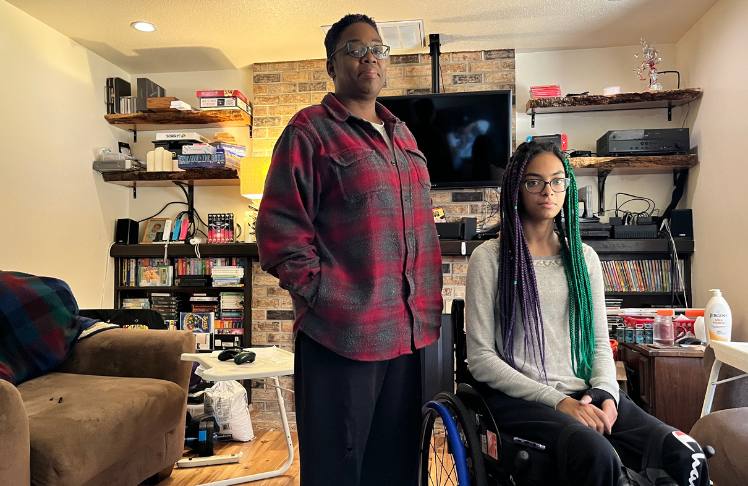
By Taija PerryCook
Amber O’Neal Johnston, Georgia-based founder of homeschooling blog Heritage Mom and a parent to four homeschooled kids, was invited to speak at the 2023 Christian Family Home Educators conference in Spokane earlier this year.
As she and the conference organizers were discussing flight details and speaking topics, they sent her an email with a single question: “What is your stance on CRT, wokeness, the 1619 project, and cancel culture?”
Taken aback, Johnston responded, asking them whether other speakers were asked the same. “The line of questioning feels potentially racist, but I’d love to get more information before jumping to conclusions or fully responding,” she wrote back.
They responded by withdrawing their invitation to speak, apologizing and writing: “By God’s grace, you will be able to fill the weekend with another speaking opportunity very quickly.”
“Washington hasn’t been seen as the friendliest for Black homeschoolers,” Johnston said recently in a phone interview. “You’re only asking me that because I’m Black, not because I actually speak on any of these topics.”
In an email, a board member from the Christian Family Home Educators declined to comment for this story on behalf of the board or otherwise.
According to Census data comparing spring to fall of 2020, the percentage of Black families who homeschooled was only 3.3% at the beginning of the COVID-19 pandemic. By fall of 2020, this percentage jumped to 16.1%, as numerous families opted to continue with homeschooling even as schools began reopening. This represents the most dramatic leap among all racial groups included in the data.
“I think that a lot of parents have looked at how much trouble their especially young boys are getting into very early in school, kindergarten or even preschool … and that just continues to accelerate throughout school,” said Jen Garrison Stuber in a recent phone interview. She serves as advocacy chair of the Washington Homeschool Organization, the largest homeschool group in the state. “Now we can see a direct correlation between being in trouble in school and ending up incarcerated and a lot of parents are going, that’s not what we want for our children.”
A study from 2021 by the Education Next Institute, a journal of opinion and research about education policy, found that Black and Hispanic middle school students have a higher likelihood of suspension or expulsion compared to their white counterparts, as per the study’s research into middle school suspension rates in Charlotte, Mecklenburg Schools, located in Charlotte, North Carolina. The study also highlights the fact that Black and Hispanic people are overrepresented in the nation’s prison system.
For Johnston and her husband, homeschooling serves as a way to avoid the systemic and daily racism present in the Georgia public school system. Additionally, it provided them the opportunity to educate their children with curricula that centered Black history, literature, art, and more.
Johnston started a co-op in her home to establish a community for other Black homeschoolers in rural Georgia, but Mickey Alderman, a homeschooling parent from Lake Stevens, has had trouble finding a similar community.
“I personally would love some means of communication to find each other, first of all. If you go to eastern Washington, you will find even less Black people than there are in western Washington,” Alderman said recently over the phone.
The WHO has documented various Muslim, Jewish, Catholic, and numerous Christian homeschooling groups across the state. However, there is no record of any Black homeschooling groups.
As a parent of three, all with special needs, Alderman not only faces the challenges of locating a Black homeschooling support system, but finding a community that also supports special-needs learning.
Keera-Marie, Alderman’s 20-year-old math whiz daughter, whose favorite subject is physics, had dreams of becoming a nurse. “Now that’s not a possibility, or an easy one,” Keera-Marie said. “I think all three of them would need some form of aid and standby assistance if I’m not able to be there,” her mom added.

Recognizing that the public school system had remained largely unchanged since her own experience as a special-needs student in the 1970s, Alderman’s primary motivation for homeschooling her kids was to offer them a more accessible and personalized education.
Homeschooling programs – often used as supplement to other curricula – also serve as community learning spaces for homeschoolers.
“If you have a student with more significant needs, programs don’t always work, and you have to go completely out of the box in order to teach them,” Alderman said. “So in that sense, in some ways, I kind of felt like we were left out because we had bigger differences.”